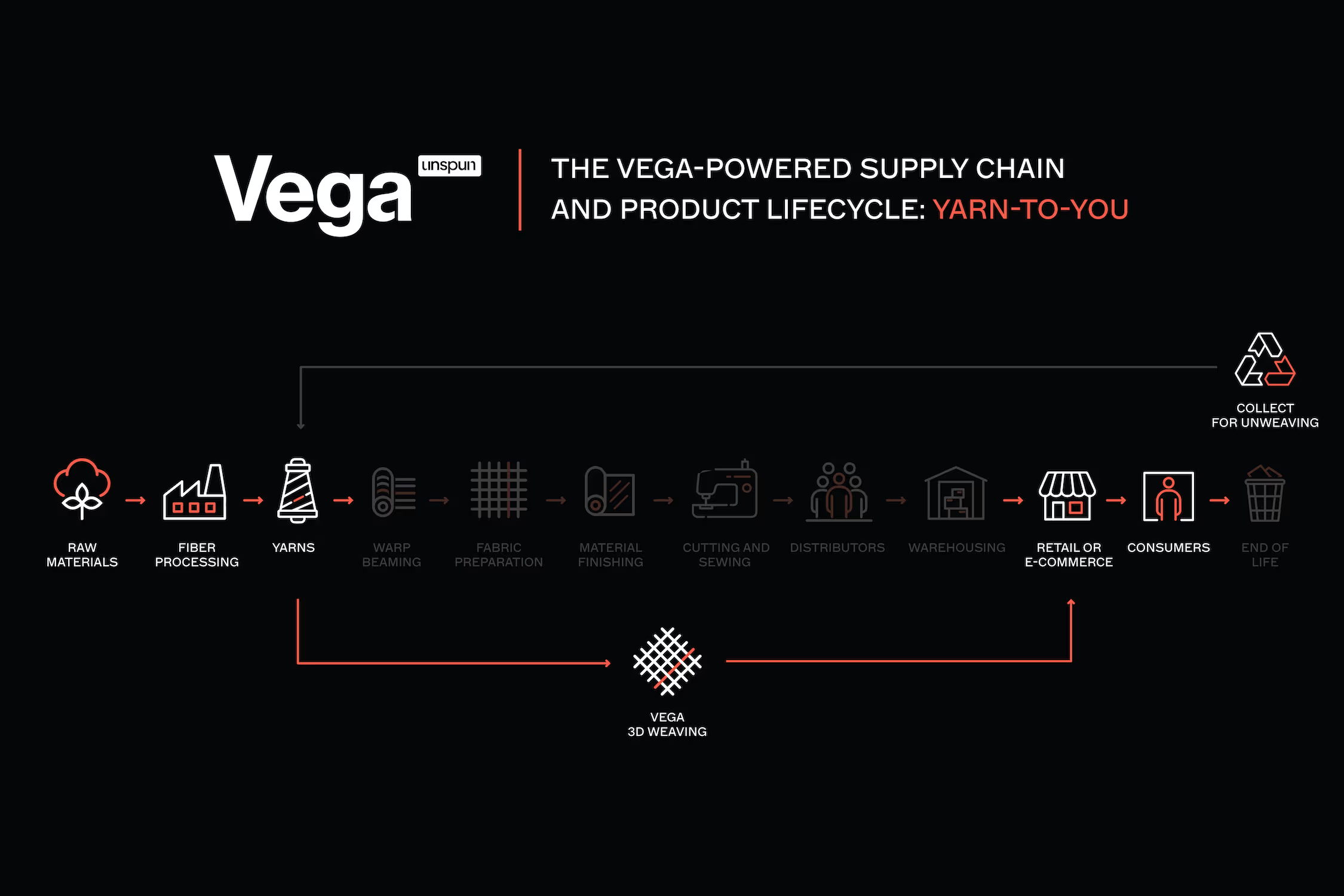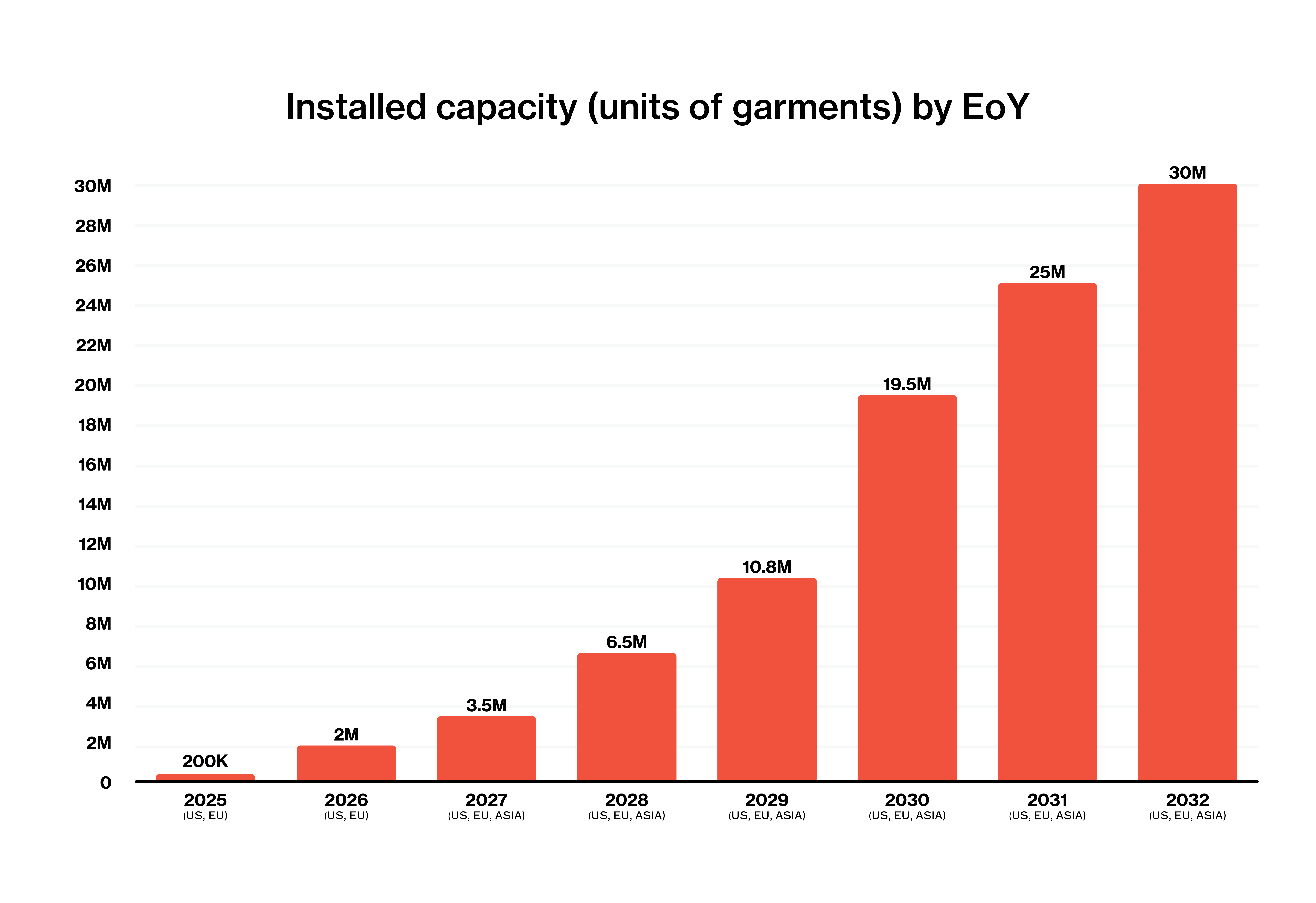Our co-founder Beth Esponnette’s take on the risks of marketing real solutions in sustainable fashion.
Replace “sustainable” with “less bad” in today’s fashion headlines and you get a more accurate picture of reality: “Less Bad Fashion Trends You Need To Know In 2023.” “Less Bad Fashion Influencers Take On Fast Fashion.” “Building a Less Bad Fashion Industry in 2023.” “Less bad” than the status quo is how I have come to make sense of the industry’s attempts to sell itself as more sustainable. But some of fashion’s favourite sustainability solutions can actually result in outcomes that are worse than the status quo.

It’s easy to think of recycling water bottles into clothing as upcycling since we think of single-use plastics as trash and expect to wear a piece of clothing at least a few times. But transforming water bottles into clothing is actually moving down the lifecycle chain. Those water bottles could have become bottles again. But now, beverage brands and clothing brands compete for used bottles, and when they are turned into clothing they can never become a bottle again, and are unlikely to become clothing again either, reducing their lifespan.

Rather than going for sustainability solutions that make for good marketing, we need to focus on the root issues. We should combat overproduction with on-demand manufacturing technologies. We should stop using materials that cannot be sustained by the planet indefinitely. We should stop making products haphazardly, with poor quality and no regard for their end of life, and instead design for disassembly and circularity. Because “Building a Worse Fashion Industry in 2023″ doesn’t have a great ring to it.
We know that no one is perfect, let alone no brand is perfect in every sense of the sustainability word, but it’s great that there are many individuals and brands working hard to make an impact. However, the fact of the matter is that there are a number of brands that are using sustainable initiatives for the wrong reasons. This is the core issue that needs to be addressed.
Read the full article by Beth Esponnette on Business of Fashion.

How can unspun help?
"Key takeaway: unspun has been developing 3D weaving to localize manufacturing since our founding and can produce and scale to 1M+ units within the next 12 months."
Since 2018, unspun has been building proprietary 3D weaving technology and software to make onshore and nearshore apparel production a reality. Our proven system slashes lead times from weeks to minutes, taking pants from yarn to finished garment in a single, seamless process. This process enables labor production time to reduce from 40 minutes to under 15 minutes. It works because it negates the need for many traditionally time-consuming apparel production steps.

Cost is no longer a barrier: we’re scaling through offtake agreements with major partners like Decathlon and Walmart. We’ve already launched a pilot facility in California and are preparing to open full-scale plants in the US and Europe.
Backed by years of policy work—spanning multiple administrations—we’re on the verge of announcing a US manufacturing consortium alongside leading brands. To power this next phase of growth, we recently closed a $32M funding round, and have committed a significant portion of the funding in helping to onboard brands and manufacturers in the new age of automated apparel manufacturing.
Below is our scheduled capacity:

Come see for yourself!
Experience the future of local and automated apparel production with us. We’re hosting exclusive in-person and virtual demonstrations of our 3D weaving technology. Join us!
🇺🇸 San Francisco
Wednesday, April 23, 2025; 5:30-8:30pm
unspun HQ, 6655 Hollis Street, Emeryville, CA
An evening summit hosted by unspun™ and American Circular Textiles. Join us for networking, panel discussions, and hanging out in the world’s first 3D woven powered-microfactory.
RSVP via this registration link.
🇭🇰 Hong Kong
Friday, May 9, 2025, 9:30 - 11:30am
unspun Studio, Shop B2, G/F, 6-10 Shin Hing Street, Central, Hong Kong
An interactive breakfast experience with a live virtual tour of the world's first 3D weaving-powered micro factory and our technology with unspun’s founders
RSVP via this registration link.
🇪🇺 Europe (Coming Soon)
Summer 2025
Secret location
Experience the entire end-to-end process of localized apparel production with 3D weaving in Europe, and be the first to see Vega in action.
Register here to get on the list.
🔗 Can’t make these dates?
Schedule a time to chat or a virtual demo. We’re happy to discuss our pipeline, share machine performance data, or walk you through our upcoming plans.
.svg)